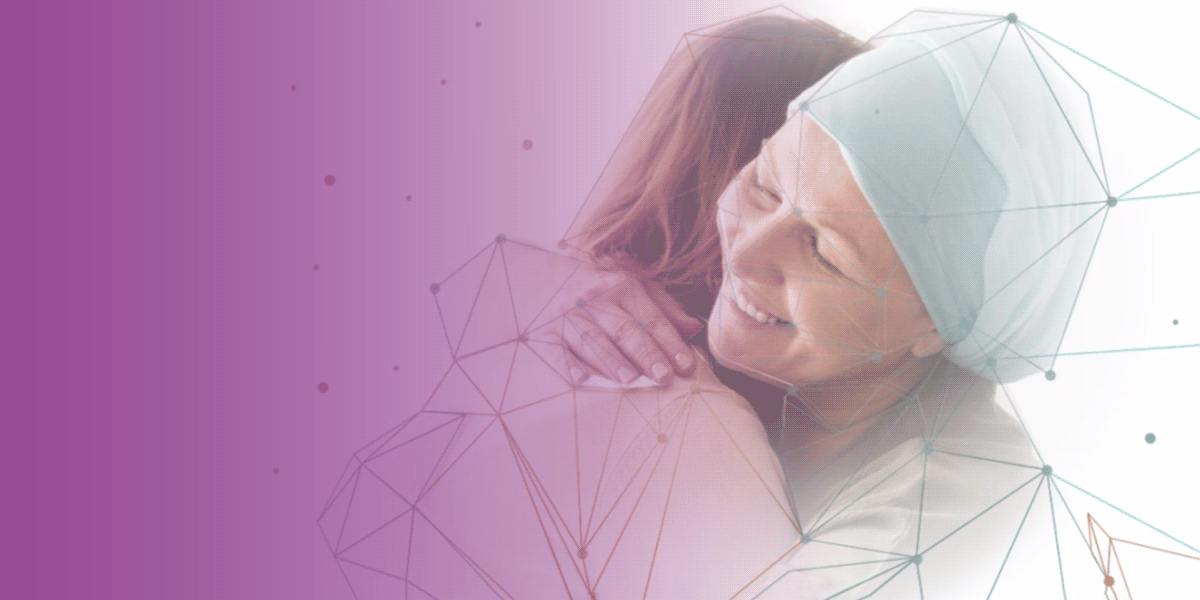The instant my haematologist mentioned the word cancer, I stopped listening. Not purposely of course, I was in shock. Rather than learn about the potential treatment options being relayed, my mind had seemingly expressed an immediate preference to fixate on the worst possible of all potential outcomes. As countless doomsday scenarios whirled around my head, I was mentally putting all my affairs in order. I was ignoring the counsel being provided in favour of convincing myself this was the end. But then, just when I was at my lowest and most desperate, something quite unexpected and wonderful happened. The doctor concluded the consultation, opened the door, and kindly introduced me to Penny.
Penny had my bone marrow cancer. Penny was also very evidently alive and well. More significantly still, Penny had received her diagnosis no less than eight years prior! And this was when, and you’ll forgive the pun, the penny dropped as to the importance of peer support and empathy in the cancer experience.
Politely asked by the doctor to stay behind after her own appointment as there might be a patient in need of someone with whom to talk, Penny was at pains to explain the myriad challenges which come from living with our cancer. However, as a real person, right there in the flesh opposed to a one-dimensional anecdote on a cancer support leaflet, she became the very embodiment of the hope that remained and a visual cue that all was not necessarily lost. Furthermore, the more Penny spoke, the more I listened. And the more I listened, the more relaxed I became. The more relaxed I became, the more able I was to make proper sense of the actualities of my disease. I immediately loved this lady for both the optimism and kindness she had conveyed, the fact that she so perfectly understood my situation, and for her ability in an instant to put me on the straight and narrow.
That first meeting with Penny has also had a profound impact on my life since. It dictated how I approached my own cancer journey. Similarly, it served as a catalyst for me to try and support others in a similar fashion. The role Penny played in humanising our cancer and helping me, the lay patient, quickly demystify the complex medical terminology used to describe our disease and the implications of potential treatments, led me to think that there must be other ways in which this peer-to-peer or patient-to-patient support might be applied.
And this is why, for what has now proven the past fourteen years(!), I have been more than happy to volunteer my time and contribute to various initiatives designed to put the patient front and centre of the cancer experience. In this period, I have developed a single-minded focus on ensuring that whether the patient elects to take a hands-on or a hands-off approach to their care, a figurative voice of Penny permeates all relevant elements of their experience.
In practical terms, this sees me serve as a patient sounding board by evaluating new reforms, innovations, research programs or cancer services being considered as part of care delivery, and then speaking out and sometimes posing puzzling questions whenever I feel that her voice is at risk of going unheard or being marginalised. For the last seven years, I have also worked for Guy’s and St Thomas’ Biomedical Research Centre giving workshops to researchers on how better to engage patients and the public in their research.
And my biggest takeaway from this experience is that while improvements are being made all the time, clinicians, healthcare bosses, scientists, and machines all still need to be reminded (or have hardcoded into their design!) for whom exactly it is that they all work! “You’ve gone heavy with the technical jargon and acronyms there, is it really required and to what extent are you making this new process accessible?” “You’ve detailed this initiative would be welcomed by the patient, but have you done your due diligence?”
It is imperative that patient buy-in is not just considered some tokenistic tick-box exercise but becomes a key tenet in how all patient experiences are designed. Moreover, as we look ahead and start to entertain the benefits exciting new AI technologies might introduce to cancer research and patient care, that we also do so with our eyes fully open as to both the need, and indeed the opportunity, to bring the patient with us. We must keep asking a Penny for her thoughts.
This is a guest post by Alan Quarterman. He serves as a patient advocate at Guy’s and St Thomas’ Hospital in London, United Kingdom and is an integral member of the Guy's and St Thomas' NHSFT, King’s Health Partners and Inspirata steering committee and project team evaluating how oncology AI can improve patient clinical trial matching. For more information on this collaboration click here.

